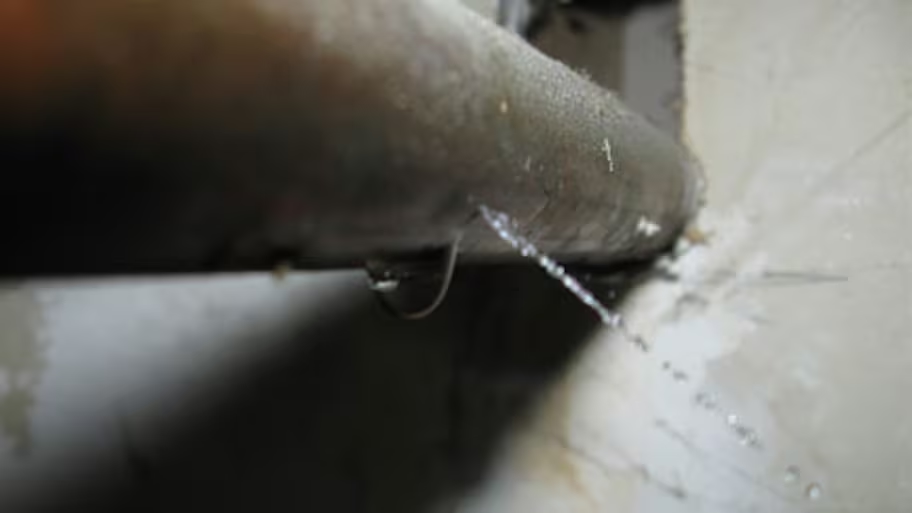The Residential Common Common Factors of Leakage: Detailed Examination
The Residential Common Common Factors of Leakage: Detailed Examination
Blog Article
What are your concepts about How Fast Water Damage Can Ruin Your Home?

Leaks not only cause waste of water however can likewise trigger unnecessary damage to your residence and also promote undesirable organic development. By comprehending and looking for day-to-day scenarios that create leaks, you can protect your home from future leakages and unneeded damage.
Trespassing roots
Most water leaks start outside the house instead than inside it. You could observe damp patches or sinkholes in your yard, and also that could mean that tree roots are attacking water lines causing water to permeate out.
Rusty water supply
This may be the reason of discoloration or bending on your water pipelines. If our plumbing system is old, consider replacing the pipelines considering that they are at a higher danger of rust than the more recent versions.
Defective Pipe Joints
The factor at which your pipes link is frequently the weakest web link in the waterline. Pipe joints can deteriorate over time, resulting in water leaks. The bulk of pipeline joints are not quickly noticeable. If you have loud pipelines that make ticking or banging noises, especially when the hot water is activated, your pipeline joints are probably under a great deal of pressure. It is suggested to have your plumber examine your system yearly.
Instant temperature changes.
Severe temperature level changes in our pipelines can trigger them to expand and acquire suddenly. This development and tightening may cause splits in the pipelines, especially if the temperature are below freezing. If you kept an eye on exactly how your plumbing functions, it would certainly be best. The existence of the previously stated scenarios often shows a high threat.
Poor Water Connectors
At times, a leakage can be created by loosened pipes and pipelines that provide your devices. In instance of a water links leak, you may notice water running straight from the supply line or pools around your home appliances.
Clogged Drains
Obstructed drains pipes might be aggravating and also inconveniencing, but they can occasionally end up triggering an overflow resulting in burst pipelines. Maintain eliminating any kind of products that might drop your drains pipes that could block them to stay clear of such aggravations.
All the above are reasons for leakages however not all water leaks arise from plumbing leakages; some leakages might come from roof leakages. All leaks need to be repaired instantly to prevent water damage.
Leaks not just cause waste of water however can also trigger unnecessary damages to your home and advertise undesirable natural development. By understanding and looking for day-to-day scenarios that create leakages, you can safeguard your residence from future leakages and also unneeded damage. Today, we will certainly look at 6 leak triggers that may be causing your pipes to trickle.
At times, a leakage can be created by loosened pipes as well as pipes that provide your devices. In situation of a water links leakage, you may notice water running directly from the supply line or pools around your home appliances.
How To Check For Water Leak In Your Home
How To Check for Leaks
The average household's leaks can account for nearly 10,000 gallons of water wasted every year and ten percent of homes have leaks that waste 90 gallons or more per day. Common types of leaks found in the home are worn toilet flappers, dripping faucets, and other leaking valves. These types of leaks are often easy to fix, requiring only a few tools and hardware that can pay for themselves in water savings. Fixing easily corrected household water leaks can save homeowners about 10 percent on their water bills.
To check for leaks in your home, you first need to determine whether you're wasting water and then identify the source of the leak. Here are some tips for finding leaks:
Take a look at your water usage during a colder month, such as January or February. If a family of four exceeds 12,000 gallons per month, there are serious leaks.
Check your water meter before and after a two-hour period when no water is being used. If the meter changes at all, you probably have a leak.
Identify toilet leaks by placing a drop of food coloring in the toilet tank. If any color shows up in the bowl after 10 minutes, you have a leak. (Be sure to flush immediately after the experiment to avoid staining the tank.)
Examine faucet gaskets and pipe fittings for any water on the outside of the pipe to check for surface leaks.
Undetected water leaks can happen without the home or business owner even realizing. If you suspect a water leak, but not able to find the source. It is time to contact a professional water leak detection service, The Leak Doctor.
How To Find a Water Leak In Your Home
https://www.leakdoctor.com/blog/How-To-Check-For-Water-Leak-In-Your-Home_AE197.html

I stumbled upon that review on Top Causes of Home Water Leaks when doing a lookup on the web. Feel free to take a moment to promote this entry if you liked it. I take joy in reading our article about Top Causes of Home Water Leaks.
Book Appointment Now Report this page